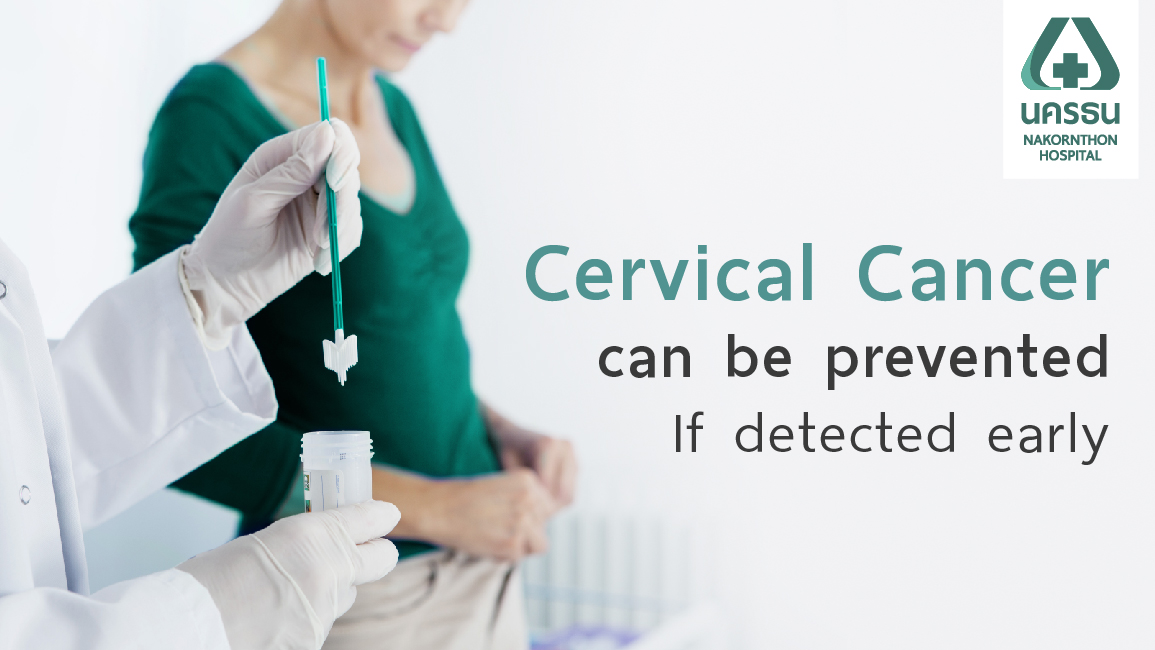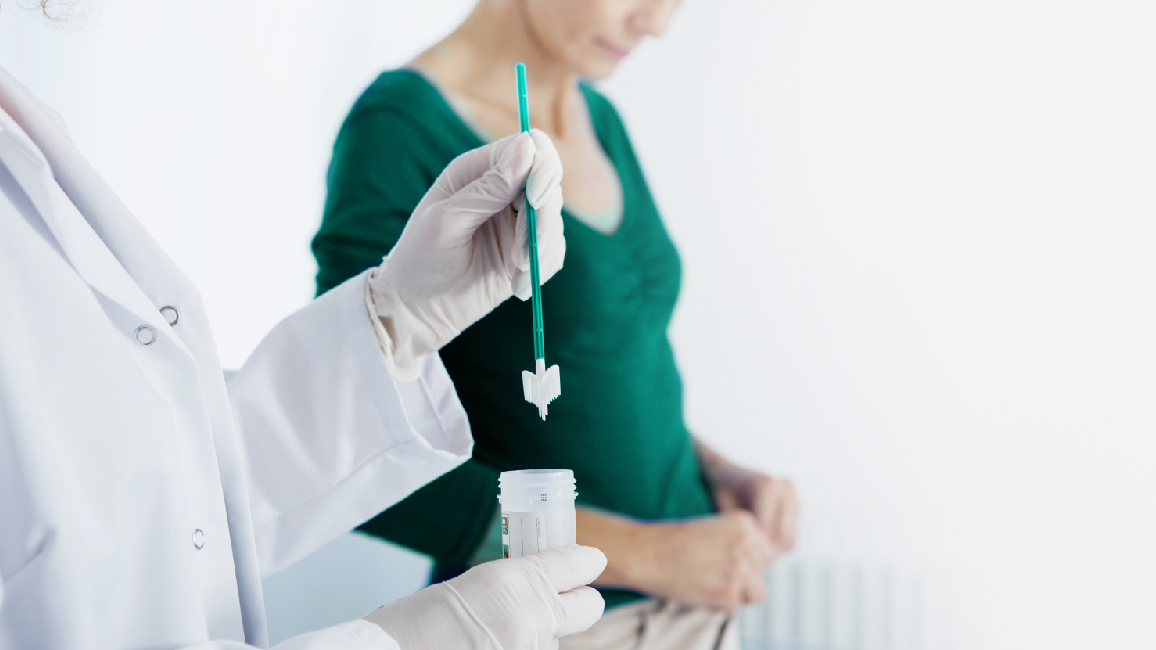
Choose to read by topic:
Cervical cancer is one of the most fatal cancers related to reproductive organs. Getting infected with HPV is the main cause of cervical cancer. Most of the time, patients with the condition are asymptomatic until the disease has progressed to the fatal stage. Hence, the best way to reduce the risk of developing cervical cancer is through prevention. The cervical cancer screening tests are recommended. The tests generally involve a basic pap smear test and an HPV DNA test. The HPV DNA test is highly recommended due to its effectiveness and precision. In this article, we will provide you with information about HPV and cervical cancer, including how to diagnose and treat the condition.
What is Cervical Cancer
Cervical cancer develops in the cervix, the female reproductive organ. The cervix connects the uterus to the vagina. Cervical cancer is one of the most common cancers among women globally. The main cause of the condition is a long-lasting infection with HPV (human papillomavirus). Cervical cancer, just like other types of cancer, takes a long time to develop. Usually, cervical cancer shows no signs or symptoms until it has developed into later stages. Pelvic pain, pain during intercourse, and vaginal bleeding between periods are some of the common symptoms of the condition. The condition can be treated if diagnosed at an early stage.
What is HPV
HPV (Human Papillomavirus) is the most common type of sexually transmitted disease. It is the main cause of cervical cancer. HPV can also cause cancer in other organs, such as the vagina, anus, throat, penis, and vulva. Sexually transmitted HPV can be categorized into two groups: low-risk HPV and high-risk HPV. The low-risk HPV types cause genital warts on the penis or the vagina, whereas the high-risk HPV types cause cancer in both men and women, affecting the reproductive organs. Even though the viral infection can lead to the development of cancer, people with a healthy immune system usually show no signs of the condition as their immunity can control the infection. The infection gradually resolves with time. However, patients with a long-term HPV infection develop cancer.
How Does HPV Cause Cervical Cancer
How does HPV cause cervical cancer? What’s the link between them?
HPV is transmitted through sexual intercourse, meaning that sexually active people are at risk of getting infected. HPV infections, on the other hand, usually go away on their own after 1-2 years because the immune system is strong enough to control them. Some people, on the other hand, stay infected for many years. A long-lasting HPV infection can cause the cells in the cervix to turn into cancer cells. Usually, it takes a long period of time—about 10–30 years to develop cervical cancer.
Currently, there is no way to know who will develop cancer or who will show signs and symptoms of HPV infection. People with weakened immune systems are at greater risk of getting HPV infections and developing cancer, including showing other signs of HPV infection.
How is HPV transmitted?
HPV is transmitted through sexual intercourse. In both sexes, genital skin-to-skin contact usually results in HPV infection. Both males and females can get infected via sexual activity. The virus is not transmitted through blood or other bodily fluids. It is recommended that women have cervical cancer screening tests every 5 years.
HPV Prevention
Presently, there are two main ways to prevent HPV infection. The first one is HPV vaccination, the other one is safe sex.
As HPV infection is the main cause of developing cervical cancer, it is best to prevent the condition. Cervical cancer takes a long time to develop and show signs and symptoms. Hence, HPV vaccination is recommended.
HPV vaccination can prevent over 90% of cancers caused by HPV. This is not limited to only cervical cancer but also includes cancers in other organs, such as the anus, vagina, and vulva.
HPV vaccination is most effective when given prior to HPV exposure. Vaccination is generally recommended for both boys and girls between the ages of 9 and 14 years.
The second way to prevent HPV is safe sex. Safe sex is highly recommended to avoid getting HPV. A latex condom is useful, although it cannot 100% prevent the infection.
Diagnosis for Cervical Cancer
Long-term HPV infection in women can result in cervical cancer. If you are sexually active and at risk of infection, it is best to seek professional help. Getting a proper diagnosis for the condition and taking cervical cancer screening tests are helpful.
Here are some methods for detecting cervical cancer.
PAP Smear
The traditional method in cytology for screening for cervical cancer is a PAP smear. The doctor will take a sample of the cervical cells. The sample will then go to the lab. The PAP smear is generally recommended as the standard test despite its low precision. It is suggested that the patient have a PAP smear every 1-2 years.
Pathtezt
Pathtezt is the test used to screen for cervical cancer. The method was developed from the conventional method in cytology: PAP smear. This procedure has less risk of contamination. It is also better in terms of precision and accuracy. Pathtezt is performed by collecting samples from the cervix with specific equipment. The sample is then kept in the tube before being sent to the lab.
HPV DNA Test
The HPV DNA test is a cervical cancer screening test that examines the virus's DNA. The method is performed at the microbiological level. The test can detect the virus before it develops into cervical cancer. With its precision, the HPV DNA test plays a major role in both preventing and treating the condition before the cancer has developed. Another benefit of the HPV DNA test is that it can detect the genotypes of the infection. The most common genotypes that cause cervical cancer are genotype 16 and genotype 18, which can be detected by the test. The duration between each test is about 5 years.
Treatment for Cervical Cancer Caused by HPV
Cervical cancer detected at an early stage can be treated, even though the HPV infection itself cannot. Treatments vary depending on the condition of each patient. Also, it is important to get a precise diagnosis so you can get proper treatments.
Treatments for cell changes caused by HPV infection, as divided by the types of infection, are:
- Precancerous cervical cell changes. Most women who have precancerous cervical cell changes are treated with LEEP (Loop Electrosurgical Excision Procedure). The method involves the abnormal tissue removal.
- Precancerous vaginal, vulvar, penile, and anal lesions and genital warts. Treatments for this condition include topical medications, cryosurgery, laser therapy, and surgical excision.
- HPV-related cancers. Patients with tumors at the same place that are unrelated to HPV infection often receive the same treatment as patients with tumors attributable to HPV infection.
HPV and Cervical Cancer FAQ
Some frequently asked questions regarding HPV and cervical cancer that you may want to know the answers to include:
Why is HPV DNA Test necessary for cervical cancer diagnosis?
HPV DNA testing and Pathtezt are necessary methods used to screen for cervical cancer as they offer high precision and accuracy. The tests offer both high sensitivity and specificity. The Pathtezt test confirms the presence of cancer cells, whereas the HPV DNA test helps detect the genotype of the virus. If both tests come back negative, the chances of contracting HPV are extremely low.
How often should you get tested for cervical cancer?
Cervical cancer screening tests are generally recommended every three years for women aged 30 and up. Other gynecological tests are recommended on an annual basis beginning at the age of 25 or the beginning of sexual activities. Cervical cancer screening tests are also recommended for sexually active individuals who are at risk of contracting an HPV infection. It is also suggested for those who are at high risk of getting infections due to weakened immune systems, such as those taking immunosuppressants and those with HIV infection. The tests are generally recommended for those who have a history of abnormal cervical cells and a history of cervix surgery as well.
HPV and Cervical Cancer Conclusion
Because long-term HPV infection can lead to cervical cancer later in life, it is recommended that you get vaccinated as soon as possible. If you are at risk of getting an HPV infection or are suspicious of developing cervical cancer, you should see a doctor. The Women Health Center at Nakornthon Hospital offers you a one-stop service for diagnosis, treatment, and prevention. The hospital offers you innovative technology and experienced specialists to take the best care of your health. Aside from getting diagnoses and treatments, you can also get the HPV vaccination at the hospital.
Online Consultation
Article of Women Health Center






